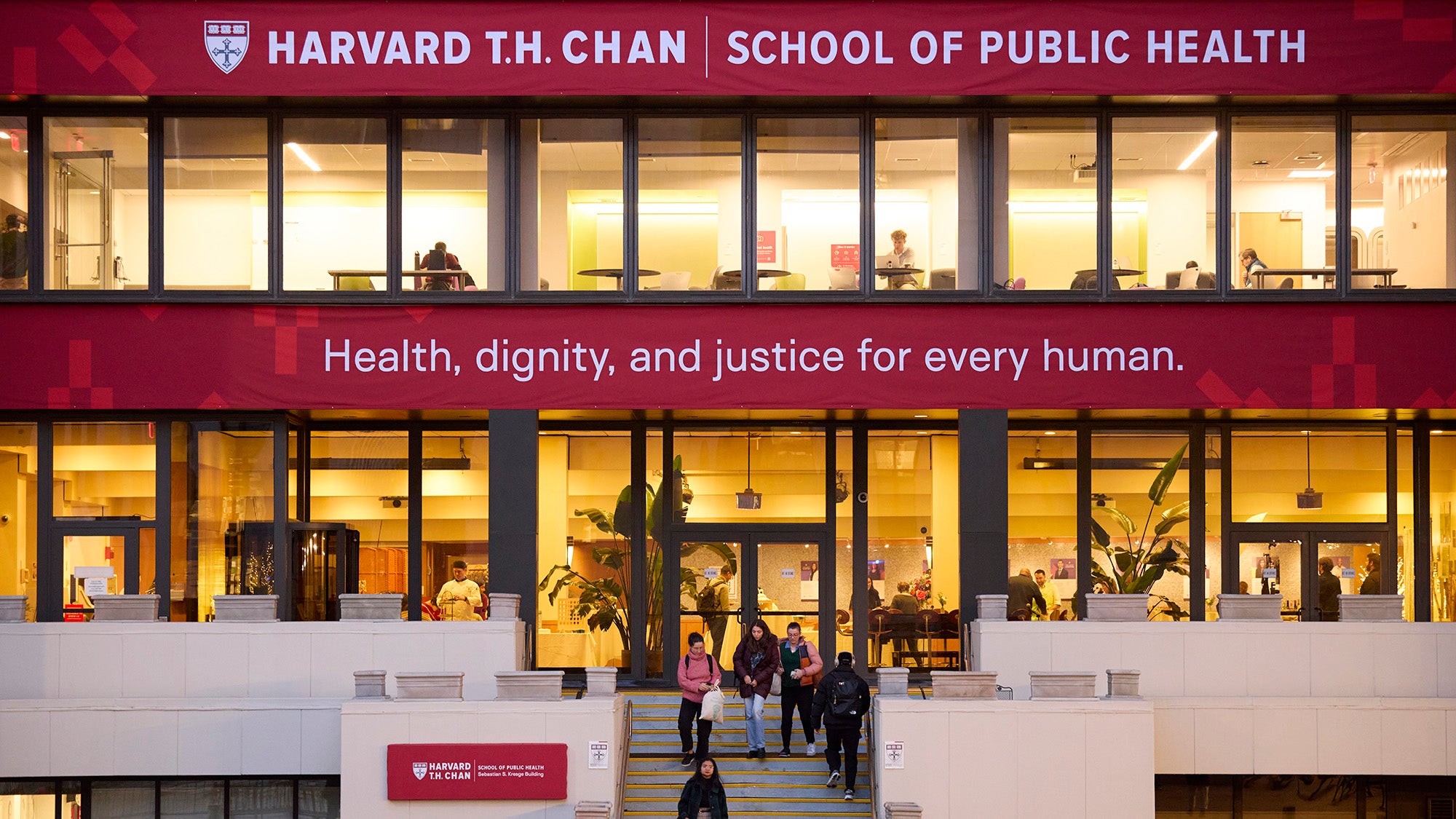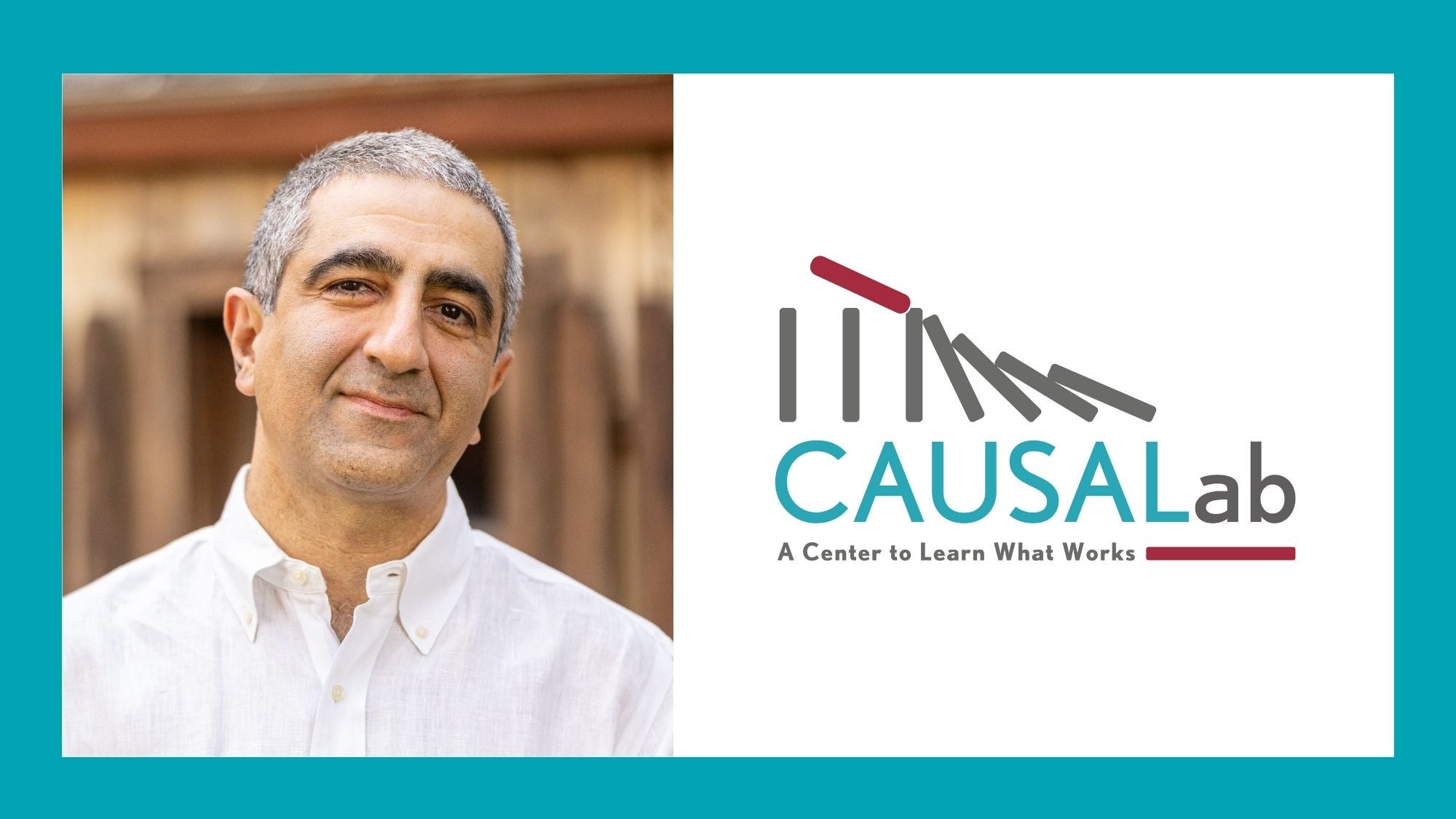Funding cuts create ‘existential crisis’ at Harvard Chan School

In the wake of the cancellation of federal grant funding for more than 130 researchers at Harvard T.H. Chan School of Public Health, faculty, staff, and students are speaking out about the havoc enveloping the School.
In a May 21 New York Times article, Amanda Spickard, associate dean for research strategy and external affairs—who has been working with colleagues to come up with a plan to address the upheaval and to find new funding sources—called the situation an “existential crisis.”
The Trump administration has been cancelling grants at Harvard University over the past several weeks, citing the University’s alleged failure to address campus antisemitism. While all of Harvard has been affected, Harvard Chan School stands to lose the most from the cuts, because it relies on funding from the federal government and other outside sponsors for 59% of its budget—a higher percentage than other Harvard schools.
Other schools of public health have also had grant funding terminated, the article noted, but Harvard Chan School has been hit hardest.
Support Harvard Chan School
Every gift contributes to our mission of building a world where everyone can thrive. To learn more about how you can support the School, please contact giving@hsph.harvard.edu.
Walter Willett, professor of epidemiology and nutrition—who has spent four decades studying the links between diet and lifestyle factors and health problems such as heart disease and cancer—called Harvard Chan School “ground zero.”
Examples of cuts cited in the article included funding for Sarah Fortune, John LaPorte Given Professor of Immunology and Infectious Diseases, whose research focuses on preventing tuberculosis and improving treatments, and Alberto Ascherio, professor of epidemiology and nutrition, who recently won a Breakthrough Prize for uncovering a link between Epstein-Barr virus and multiple sclerosis.
Marc Weisskopf, professor of environmental epidemiology, talked about receiving an email about the cancellation. “It feels like a gut punch,” he said. He noted that the funding cancellation could mean the end of his research, conducted over the past 20 years, to learn why military veterans are more likely to be diagnosed with amyotrophic lateral sclerosis (ALS) than other groups. He said he is worried about the jobs and futures of the 10 to 15 researchers who work with him.
Karen Emmons, professor of social and behavioral sciences, noted that some researchers from Harvard Chan School are already being recruited by universities in Europe and China.
The Times article mentioned a video project aimed at clearly communicating the School’s contributions, featuring students and researchers describing their research in just seven words.
The article also quoted Disha Ganjegunte, president of the Harvard Chan Student Government Association, who is earning a master’s degree in global health this month. She said that, in spite of the pressure on the School, her commitment to working in human rights and conflict resolution remains strong. “Public health as a field is very resilient, and it’s overcome a lot, from climate change to human rights being questioned,” she said. “I think what’s happening is a wake-up call, and it only makes me more stubborn.”
Other Harvard Chan experts have recently been quoted on the Harvard funding cuts in other media outlets. John Quackenbush, Henry Pickering Walcott Professor of Computational Biology and Bioinformatics, talked about how the cuts have harmed promising cancer research on a May 15 episode of the radio talk show “Your Call” on KALW.
A May 16 WBUR article quoted Michael Barnett, associate professor of health policy and management; Mary Rice, Mark and Catherine Winkler Associate Professor of Environmental Respiratory Health and director of the Center for Climate, Health, and the Global Environment; Francesca Dominici, Clarence James Gamble Professor of Biostatistics, Population, and Data Science, and director of the Harvard Data Science Initiative; and Jorge Chavarro, professor of nutrition and epidemiology. Rice is in the final six months of a five-year study looking at whether air purifiers can help former smokers who have chronic obstructive pulmonary disorder (COPD). She called the cuts “a tremendous waste of resources.”
Willett, Quackenbush, and Brittany Charlton, associate professor in the Department of Epidemiology, were quoted in a May 16 Boston Globe article. Said Charlton, “The scale of what happened is incomprehensible—a bloodbath for research and the wider community.”
Read the New York Times article: Federal Cuts Become ‘All Consuming’ at Harvard’s Public Health School
Listen to “Your Call”: The Trump cuts have already ‘devastated promising cancer research’
Read the WBUR article: Feds yank funds from Harvard breast cancer, fertility, antibiotics research
Read the Boston Globe article: ‘A bloodbath’: Trump administration moves to terminate hundreds of federal grants at Harvard


